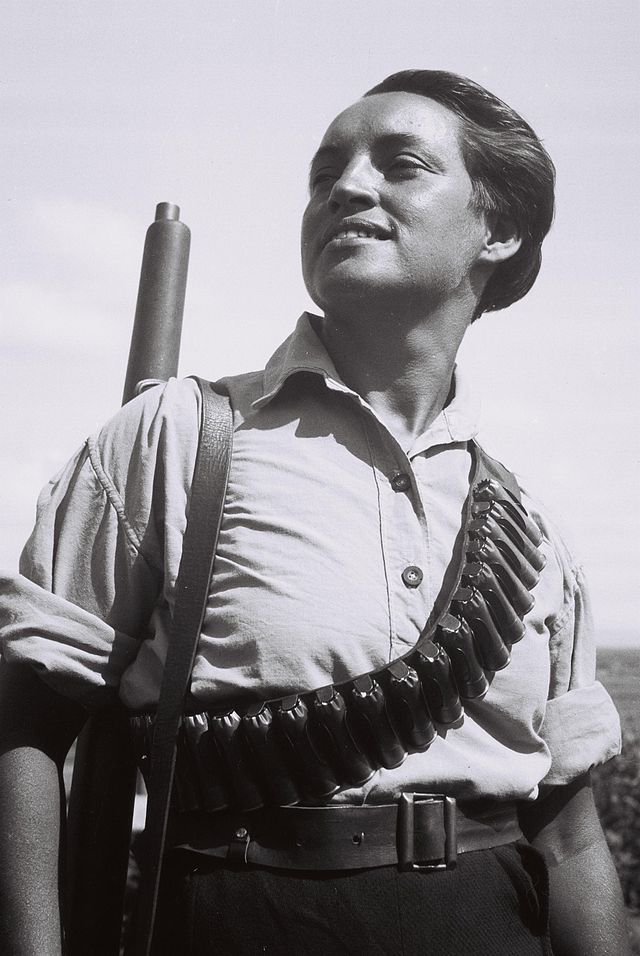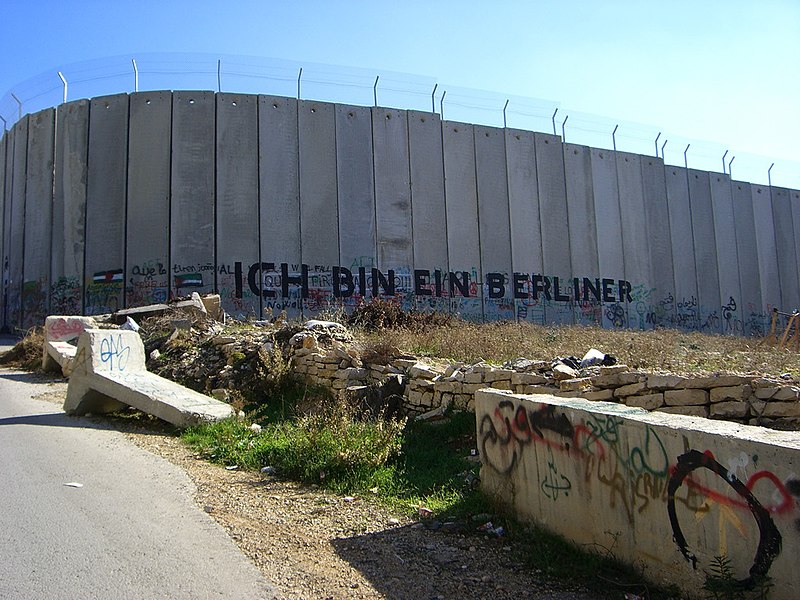Is there a solution?
Since the Six Days War I've found that Jewish friends are often sympathetic to the continued existence of the State of Israel but not to the hard line position taken by extreme Zionists like the 'Settlers' and I have generally agreed.
Israel as a State is obviously here to stay. But I can't see why it can't have a secular constitution like most other democracies.
It has been said that the 'Jewish race' needs a homeland but that is an idea from the Austro-Hungarian Empire of the late 18th century, the same culture that gave us the 'master race'. A 'Jewish race' may have been plausible then but is evidently nonsense in today's Israel where hardly anyone conforms to the racial stereotype. There are people of every ethnicity visiting the Western Wall at Shabbat. Only about half the population are Middle Eastern at all. The other half is distinctly European in appearance. It might as well be Australia or England or Germany or the USA or Russia. Tall blonds, short blonds, redheads, blue, green, hazel eyes slim, grossly obese all shapes and sizes, hardly a Jewish nose or even a Woody Allen in sight.
So, if there is no distinct Jewish race we are left with the proposition that it is the religion that needs a special country where it can be practiced. Perhaps this is a desire of all religions? Catholics have Vatican city (and Malta), Buddhists Tibet.
Even that seems problematic. As in most advanced cultures 20% are, like Herzl himself, secular atheists. At the other end of the spectrum no one seems too keen on the antics of the stone-throwing mosque-crashing ultra-orthodox Haredi or Hasidic activists, except presumably some in their own communities.
In the early days, much of Israel was developed by kibbutzim (agricultural collectives) based on socialism (pure communism) in which women famously took an equal part with men and traditional religion was distained. Jewish traditions were still valued, perhaps by replacing traditional ceremonies with dancing and avoiding work on Saturday, but often kibbutzim were atheist and styled themselves 'Monasteries without God'. When I was at University in the 60's I met people who had been to Israel to work on a kibbutz and had friends who were planning to.

A Kibbutz Guard 1936 (Wikipedia - public domain)
Had Jews and Arabs been forced to make Palestine work as a mixed and integrated country or as two states, living in harmony, things might have been different. But now there is no going back. Israel is a country in which several generations of young Israelis have been born. What was once potentially soluble, had the British mandate survived; or the UN decided another way; or the Arabs had gone along with the UN resolution; seems to be a lost cause.
Since 1948 there have been just over 3 million immigrants to Israel yet the population of Israel in 2014 has grown to approximately 8.2 million with 75 percent (6.15 million) being Jewish Israelis. Almost exactly half of this number are native born.
Of the immigrants almost a third arrived from Europe in the first decade and another third from Russia and the Ukraine in the 1990's. Around 800 thousand are from predominantly Muslim countries, many fleeing persecution as tensions with Israel grew. The balance is from across the globe with the United States, Argentina and South Africa significant contributors.
It has been argued that expelled Palestinians have a greater right to the country that recent immigrants but not so their children. The argument goes that native born children of any religion have every right to live in the country of their birth. Correspondingly, foreign born children of Palestinian refugees should not have the same right to the country as native born Jews or Arabs. So in due course all the refugees in Jordan and Egypt and Lebanon will be dead and their children will be natives of those countries.
I'm sympathetic to this argument. I don't believe that I have a right to claim ownership of part of Scotland on the grounds that it is the land of my ancestors. But it's a bit more complex. I would want to say that ones roots, patriality, family origins and traditions do stand for something. This is particularly the case when families are forcibly expelled from their homeland.
At the moment Israeli Jews and Arabs are trying to out-breed each other in a competition for the country in the future. A few years ago the Arabs were ahead but now the Jews have overtaken them and the Israeli population is growing at about 1.8 percent a year.
There is no easy solution. Either a homeland must be found for the Palestinians or a single state must evolve in which the walls are removed and everyone becomes a citizen. Neither of these appears likely any time soon.
Despite the huge numbers of arrivals and native born, Jews still do not outnumber the combined non-Jewish Arab populations in Israeli controlled Palestine if in addition to those living in Israel proper and East Jerusalem are added those in the Gaza Strip and the West Bank, that are effectively walled-off Arab ghettos. It is therefore probable that if the walls came down on both of these, and truly democratic elections were held, an Arab party would win government and promptly change the constitution and/or dramatically overhaul the Jewish State.
One would like to think that they could put their religious and cultural differences aside but everything I've seen suggests that these differences are getting worse. Civil war would certainly reignite.
The internationally accepted two state solution is equally problematic for both sides. The west Bank and Gaza Strip are geographically separated and have quite different objectives and priorities and solutions offered by Israel seem to be deliberately unacceptable.
The actual Israeli solution seems to be to eat away at the potential Palestinian State by degrees, first by allowing and even encouraging the Settlers to annex parts of the less populous West Bank and east Jerusalem.
At the same time Israel is systematically making the more populous but agriculturally richer Gaza Strip less and less viable. It is hard not to see the Gaza Strip as a besieged ghetto within which the population is periodically and devastatingly attacked for daring to fight back. It is surrounded by a wall and in-depth defences and blockaded from the sea. Many have likened it to Berlin during the blockade of that city. But unlike West Berlin it's not a place anyone would want to escape into.
A similar, less fortified, but much longer, wall separates the Jewish State from the Palestinian West Bank: the West Bank Barrier. It runs along the 1949 Armistice Line, a total length of approximately 700 kilometres. It's a truly impressive engineering feat but not one calculated to improve Israel's relationship with the walled-off Palestinians.
The West Bank barrier wall
 Bethlehem_Wall - the other side
Bethlehem_Wall - the other side
(from Wikipedia Commons: By Marc Venezia - Picture taken during a trip in Middle-East)
Unlike the unification of Germany, celebrated with beer and fireworks this week, I can only conclude that it will all end in tears, which is a pity as most of the people we met are very nice.
Like people everywhere, everyone we met desperately wants to live their life in peace and harmony. But for many, in this land of uncompromising beliefs and ancient enmities, their colourful myths and traditions, and very real memories, get in the way of extending this desire for peace and harmony to others.
